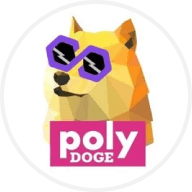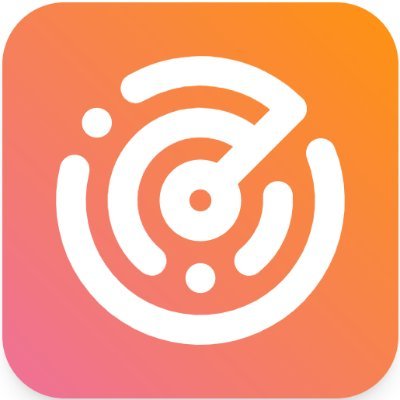PolyDoge price
in USDCheck your spelling or try another.


About PolyDoge
PolyDoge issuer risk
Disclaimer
OKX does not provide investment or asset recommendations. You should carefully consider whether trading or holding digital assets is suitable for you in light of your financial condition. Please consult your legal/tax/investment professional for questions about your specific circumstances. For further details, please refer to our Terms of Use and Risk Warning. By using the third-party website ("TPW"), you accept that any use of the TPW will be subject to and governed by the terms of the TPW. Unless expressly stated in writing, OKX and its affiliates (“OKX”) are not in any way associated with the owner or operator of the TPW. You agree that OKX is not responsible or liable for any loss, damage and any other consequences arising from your use of the TPW. Please be aware that using a TPW may result in a loss or diminution of your assets. Product may not be available in all jurisdictions.
PolyDoge’s price performance
PolyDoge on socials
Guides

PolyDoge FAQ
PolyDoge is a Dogecoin-inspired memecoin project on the Polygon network that rewards holders with NFT and token airdrops. The project also has an ecosystem of dApps and play-to-earn crypto games. POLYDOGE is the name and ticker symbol of PolyDoge's native governance and utility token.
POLYDOGE token holders can participate in project governance, earn liquidity provider incentives, buy PolyDoge Card NFTs, and pay for real-world services. Apart from these, the PolyDoge ecosystem also has play-to-earn games and its flagship digital pet gaming multiverse, Metapetz.
Easily buy POLYDOGE tokens on the OKX cryptocurrency platform. OKX’s spot trading terminal includes the POLYDOGE/USDT trading pair.
You can also swap your existing cryptocurrencies, including XRP (XRP), Cardano (ADA), Solana (SOL), and Chainlink (LINK), for POLYDOGE with zero fees and no price slippage by using OKX Convert.
Dive deeper into PolyDoge
PolyDoge is a Dogecoin-inspired meme token built on Polygon. By holding POLYDOGE, participants get access to limited edition non-fungible tokens (NFTs), token airdrops, new blockchain games and app, and a DeFi ecosystem. POLYDOGE is the name and ticker symbol of the native governance and utility token of the PolyDoge ecosystem.
PolyDoge aims to be the top meme coin on Polygon and has airdropped several limited edition NFTs such as Genesis Coin, Dragon's Lair, and Batting For The Moon, among others. On top of that, they partnered with Gains Network to add a decentralized trading platform to their growing ecosystem of decentralized applications (dApps). PolyDoge aims to have the top decentralized leverage trading platform on the Polygon Network.
The PolyDoge ecosystem has also ventured into the play-to-earn (P2E) space with DogeQuake, the first FPS game on the Polygon network where players can earn POLYDOGE tokens by killing other players. Another major game of the PolyDoge ecosystem is MetaPetz, an NFT-based pet gaming multiverse built on Unreal Engine.
If you hold POLYDOGE tokens, you can participate in the governance of PolyDoge via the PolyDoge DAO. In addition, you can earn liquidity provider incentives on DeFi platforms like Polycat Finance and QuickSwap and buy PolyDoge Card NFTs.
POLYDOGE price and tokenomics
POLYDOGE has a maximum supply of 1 quadrillion tokens and was rolled out via a fair launch. The first 20 members of the PolyDoge telegram group were given POLYDOGE tokens via an airdrop. The remaining supply was used to add liquidity.
Initially, PolyDoge burned 13.2 percent of its supply. LP tokens were also burned to reduce supply and boost the price. Additionally, 10 trillion tokens received from PolyDoge Cards NFT sale were also burned. 14.5 percent of the POLYDOGE supply was burned as of October 2021, contributing to POLYDOGE's price and growth.
About the founders
PolyDoge was launched in April 2021. Famous YouTuber and TikToker Bart Baker and popular TV personality Shira Lazar are the advisors of the PolyDoge project. PolyDoge's brand outreach and marketing team includes Jordan Charters and Gerald Smiley, the founder of Chip-in, a fintech company focused on raising money. PolyDoge has partnerships with Quickswap, Polycat Finance, OWL Casino Games, FarmHero, Dogira, and Las Vegas Inferno, Las Vegas' professional esports team.
ESG Disclosure




